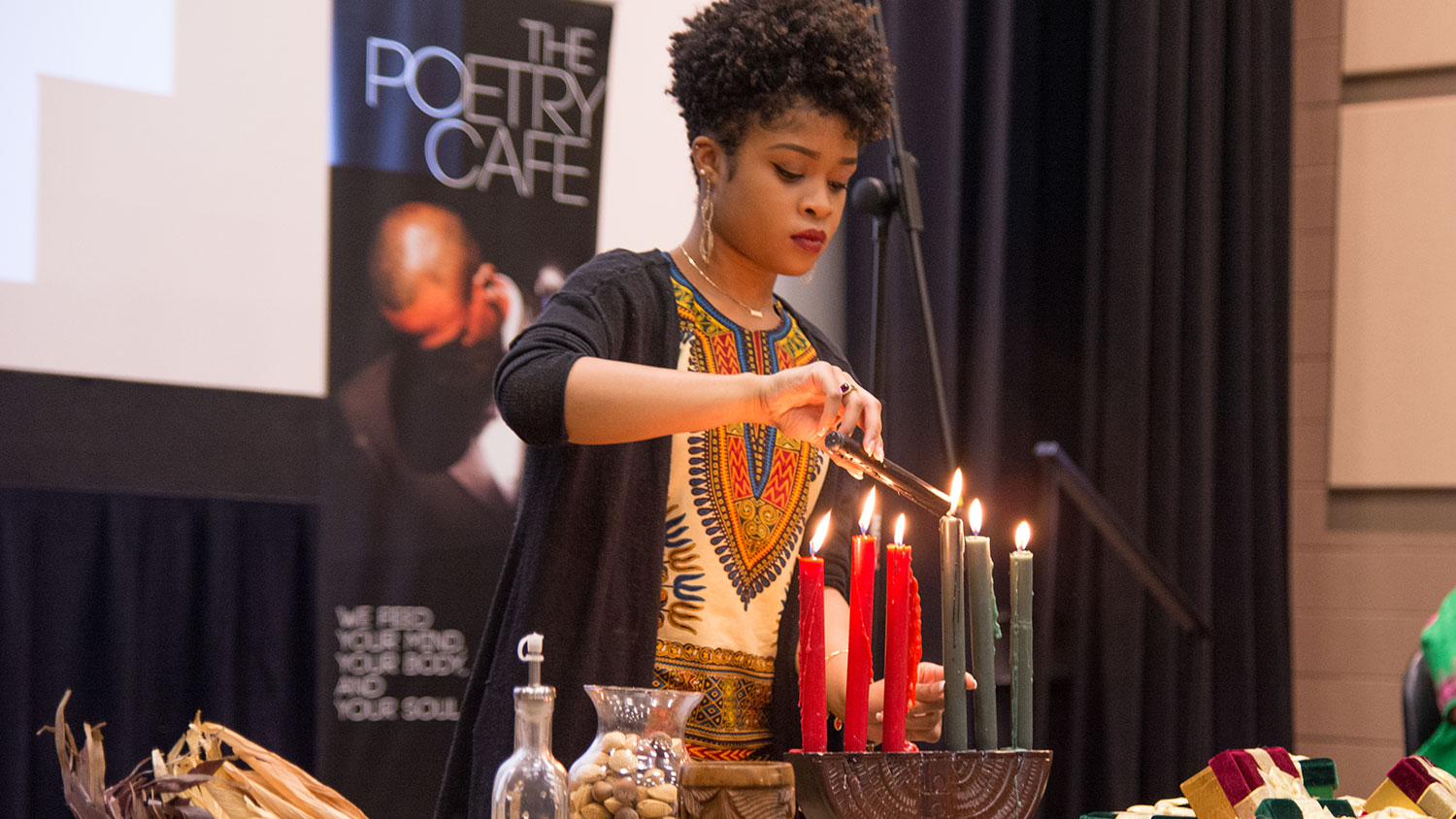Join the African American Cultural Center at Kwanzaa

Kwanzaa is a week-long holiday celebrated by many people of the African diaspora. The holiday celebrates African-American culture and is one of the first pan-African holidays. Its history is rooted in Black Liberation struggles of the 20th century – a time when many Black Americans were fighting for political, economic, social and cultural freedom. Kwanzaa, specifically, was born out of the movements’ focus on creating and maintaining Black culture through art, literature and cultural celebration. The holiday was first celebrated in 1966 and many of its adherents continue to celebrate Kwanzaa alongside other religious holidays.
Seven Principles of Kwanzaa
Each day during the Kwanzaa holiday, people who are celebrating reflect and practice the “seven principles of African heritage, or the Nguzo Saba. These principles emphasize community, bonding and self-determination.
- December 26: Umoja (Unity): To strive for and maintain unity in the family, community, nation and race.
- December 27: Kujichagulia (Self-Determination): To define ourselves, name ourselves, create for ourselves and speak for ourselves.
- December 28: Ujima (Collective Work and Responsibility): To build and maintain our community together and make our brother’s or sister’s problems our problems and to solve them together.
- December 29: Ujamaa (Cooperative Economics): To build and maintain our own stores, shops and other businesses and to profit from them together.
- December 30: Nia (Purpose): To make our collective vocation the building and developing of our community in order to restore our people to their traditional greatness.
- December 31: Kuumba (Creativity): To do always what we can, in the way we can, in order to leave our community more beautiful and beneficial than we inherited it.
- January 1: Imani (Faith): To believe with all our heart in our people, our parents, our teachers, our leaders and the righteousness and victory of our struggle.
People observe the seven principles in a variety of ways. Many choose to volunteer, frequent Black-owned business, and/or spend time with their loved ones. Each day of Kwanzaa, observers light one of the kinara candles, which signifies the principle for the day. Usually on the evening of December 31, those celebrating Kwanzaa have a large feast or the Kwanzaa Karamu. The next morning, family and friends exchange gifts.
Kwanzaa at NC State
Although Kwanzaa is celebrated from December 26 to January 1, the African American Cultural Center (AACC) will celebrate Kwanzaa on December 5, 2017 at 7:30 p.m., while many students are still on campus. The AACC is accepting signups from those who want to perform verbal art such as song, poetry, monologues, passages and spoken word. Performances should incorporate or highlight any of the seven principles of Kwanzaa. If you are interested in performing, please sign up at go.ncsu.edu/kwanzaatalent.
- See event details on the AACC website.
Chaniqua Simpson is a doctoral candidate in sociology and anthropology and a graduate intern at the African American Cultural Center.
- Categories:


